Understanding the risks associated with consuming certain foods raw is crucial for maintaining good health. This blog post delves into the lesser-known hazards lurking in some common foods when they are not cooked properly. Highlighting specific items that pose a risk to health if eaten raw, the aim is to educate readers about the importance of food safety. By exploring the reasons behind these risks, the article provides valuable insights into how proper cooking can not only prevent health issues but also enhance the nutritional value of these foods.
Contents
Potatoes
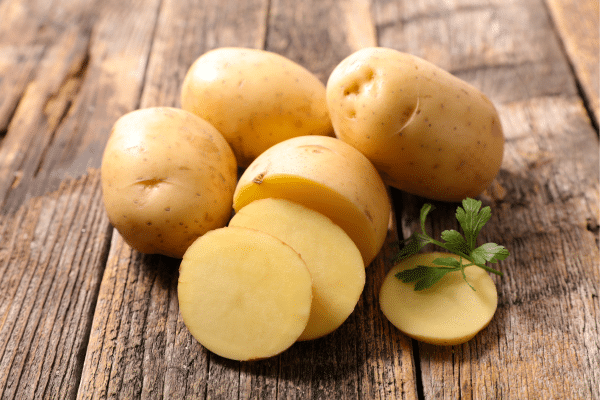
Raw potatoes contain solanine and chaconine, two glycoalkaloids that can cause gastrointestinal distress, headaches, and in extreme cases, neurological disorders. These compounds are more concentrated in green or sprouting potatoes. Cooking potatoes significantly reduces their levels, making them safe for consumption. It is recommended to avoid eating potatoes that are green or have sprouted, as these are signs of higher glycoalkaloid content.
When cooking potatoes, it is advisable to boil, bake, or roast them until they are tender. This process not only neutralizes the harmful compounds but also brings out the natural flavors, making them more palatable. It’s important to store potatoes in a cool, dark place to minimize the formation of these toxic compounds. Always inspect potatoes before use and discard any that show extensive green coloring or sprouting.
Red Kidney Beans
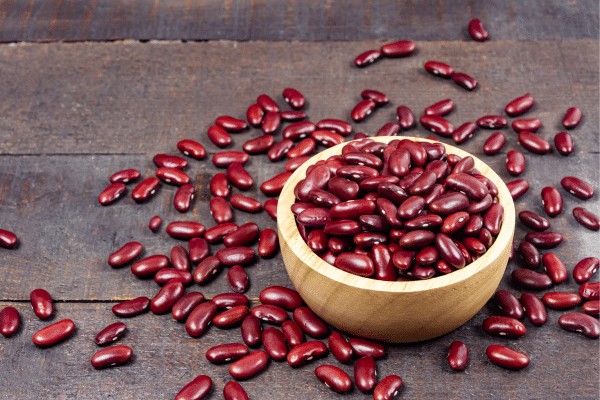
Red kidney beans are a staple in many cuisines, but they harbor a natural toxin called lectin. This compound can cause severe nausea, vomiting, and diarrhea if the beans are eaten raw or undercooked. To eliminate this risk, red kidney beans must be soaked for at least five hours and then boiled for a minimum of 30 minutes. This process deactivates the lectins, making the beans safe to eat.
The importance of thorough cooking cannot be overstated when it comes to red kidney beans. Slow cookers, which often don’t reach a temperature high enough to destroy lectins, should be avoided for cooking these beans. It’s advisable to pre-cook them using the boiling method before adding them to slow-cooked dishes. This extra step ensures that the health benefits of red kidney beans can be enjoyed without any adverse effects.
Eggs

Eggs, a nutritious and versatile ingredient, harbor a risk of Salmonella contamination when consumed raw. This bacterium can cause severe food poisoning, with symptoms like diarrhea, abdominal cramps, and fever. Particularly vulnerable groups include pregnant women, young children, the elderly, and those with weakened immune systems. To mitigate this risk, it’s advised to use pasteurized eggs or cook them thoroughly until both the yolk and white are firm.
In addition to avoiding raw eggs, proper handling and storage are essential in reducing the risk of Salmonella. Eggs should be refrigerated at a temperature below 40°F (4°C) and used within three weeks of purchase. When preparing dishes that traditionally use raw eggs, like Caesar salad dressing or homemade mayonnaise, opt for pasteurized eggs or egg products as a safer alternative. This ensures the enjoyment of these dishes without compromising on safety.
Beef, Pork, And Chicken
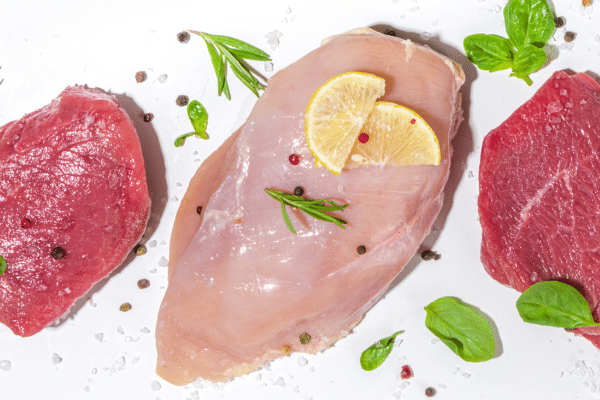
Raw or undercooked beef, pork, and chicken pose significant health risks due to potential contamination with pathogens like E. coli, Salmonella, and Trichinella. These pathogens can cause serious foodborne illnesses, with symptoms ranging from mild gastrointestinal discomfort to more severe conditions. Ensuring these meats are cooked to the appropriate internal temperature is essential for safety. For beef and pork, this is 145°F (63°C), followed by a three-minute rest time, and for chicken, the safe internal temperature is 165°F (74°C).
Cross-contamination is another concern when handling raw meat. Utensils, cutting boards, and surfaces that come into contact with raw meat should be thoroughly cleaned before being used for other foods. This prevents the spread of bacteria from raw meat to other ingredients that may not be cooked, such as salads or garnishes. By adhering to these cooking and handling guidelines, one can enjoy these meats safely and reduce the risk of foodborne illness.
Cassava
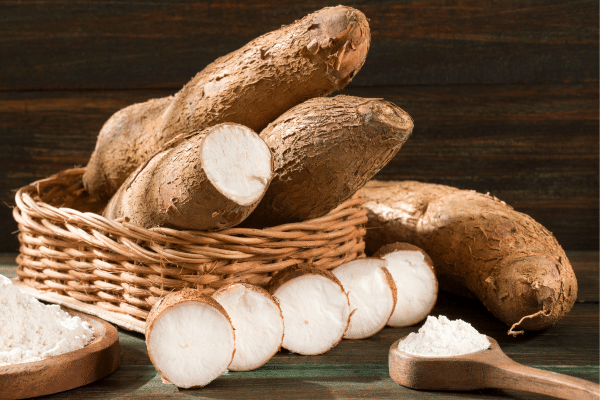
Cassava, a root vegetable widely consumed in many parts of the world, contains cyanogenic glycosides, which can release cyanide in the body when eaten raw. These compounds can cause cyanide poisoning, characterized by dizziness, headaches, and even life-threatening complications. Proper preparation, including peeling and thorough cooking, is necessary to reduce the risk. It is advisable to soak cassava in water for at least 24 hours before cooking, as this helps to leach out harmful toxins.
Boiling is the most effective method of cooking cassava to remove toxins. The cooking water should be discarded, as it absorbs the harmful compounds released from the cassava. This root vegetable, once properly prepared, offers a rich source of carbohydrates and can be a healthy part of a balanced diet. However, awareness and careful preparation are key to ensuring its safety for consumption.
Eggplant
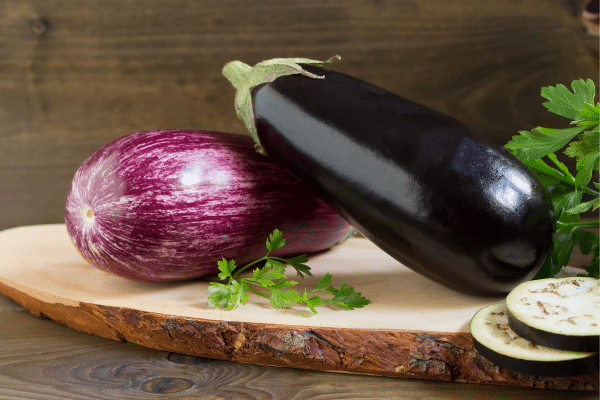
Eggplant, known for its versatile use in various cuisines, contains solanine, a compound that can cause gastrointestinal issues if ingested in large quantities. While the levels of solanine in eggplant are generally lower compared to other nightshade vegetables like potatoes, caution is still advised. Cooking eggplant thoroughly reduces the solanine content, making it safer and more digestible.
When selecting eggplants, opt for younger, smaller ones as they tend to have lower solanine levels. Baking, roasting, or grilling eggplant until it is soft ensures that it is both safe to eat and delicious. The cooking process breaks down the compounds, mitigating the risk of solanine-related discomfort. This allows the enjoyment of eggplant’s rich flavors and nutritional benefits without concern.
Mushrooms

Certain varieties of mushrooms can be harmful when eaten raw due to the presence of toxins and tough cell walls that are difficult to digest. Some mushrooms also contain small amounts of carcinogenic compounds that are broken down when cooked. Cooking mushrooms not only makes them safer to eat but also releases their nutrients, making them more beneficial.
When consuming mushrooms, it’s crucial to be knowledgeable about the different types. Some wild mushrooms are highly toxic and should never be consumed, whether cooked or raw. Store-bought mushrooms are generally safe, but should still be cooked to enhance their flavor and digestibility. The process of cooking mushrooms, such as sautéing, roasting, or grilling, breaks down their tough cell walls and makes their nutrients more accessible.
The Bottom Line
Awareness of the foods that pose risks when consumed raw is key to maintaining good health. The highlighted items – potatoes, red kidney beans, eggs, beef, pork, chicken, cassava, eggplant, and mushrooms – each carry specific risks when not properly prepared. By understanding these risks and following recommended cooking practices, the safety and nutritional value of these foods can be maximized. Cooking not only neutralizes potentially harmful compounds but also enhances flavor, making meals both delicious and safe. This knowledge empowers individuals to make informed choices in their diets, ensuring a balance of safety and enjoyment in their culinary experiences.


